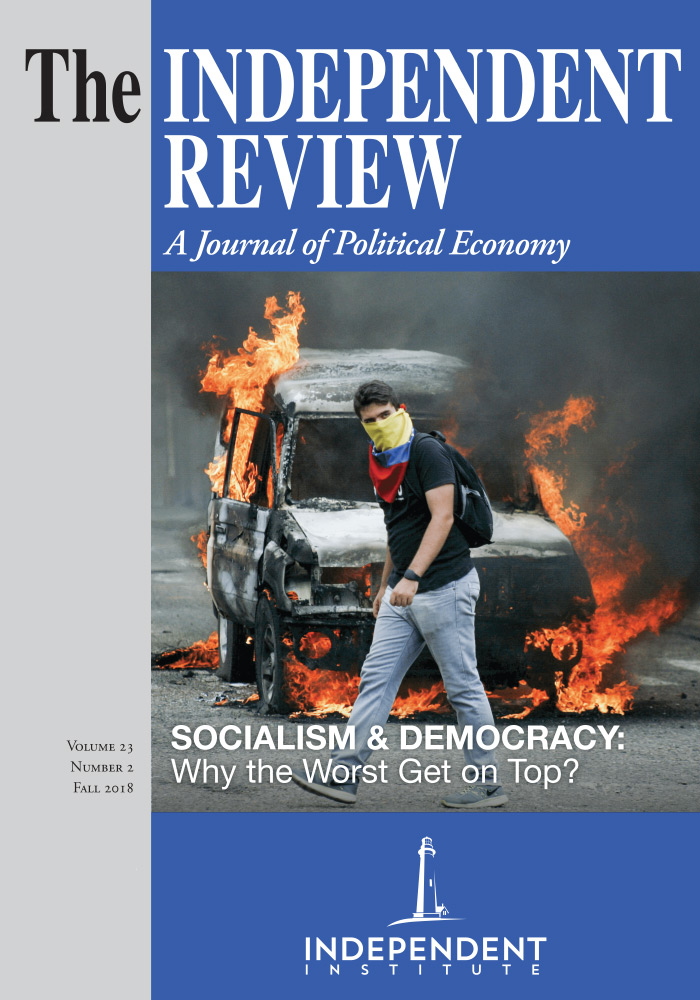Gordon Tullock, like Austrian School economist Ludwig von Mises, understood omo economicus as a purposive agent for whom choice is open-ended, rather than a close-ended decision to maximize given ends using given means. Both scholars also held that the proper goal of the social scientist is to explore how various institutional settings influence human action.
Peter J. Boettke is a Research Fellow at the Independent Institute and Professor of Economics and Philosophy at George Mason University.
Rosolino A. Candela is a Research Fellow at the Independent Institute and Program Director, of Academic and Student Programs and Senior Fellow in the F.A. Hayek Program for Advanced Study in Philosophy, Politics, and Economics at the Mercatus Center at George Mason University.
| Other Independent Review articles by Peter J. Boettke | ||
| Fall 2024 | Capitalism versus Socialism: The Confusion of Knight, the Clarity of Mises | |
| Fall 2023 | Don Lavoie: The Failures of Socialist Central Planning | |
| Winter 2022/23 | Mont Pèlerin 1947: Transcripts of the Founding Meeting of the Mont Pèlerin Society | |
| [View All (14)] | ||
| Other Independent Review articles by Rosolino A. Candela | ||
| Spring 2024 | Yoram Barzel: Property Rights, Political Economy, and the Reorganization of Economic Analysis | |
| Fall 2023 | Israel M. Kirzner and the Entrepreneurial Market Process: An Appreciation | |
| Spring 2023 | The Creation of Knowledge in Society: Waste Defined by Property and Exchange | |
| [View All (5)] | ||










